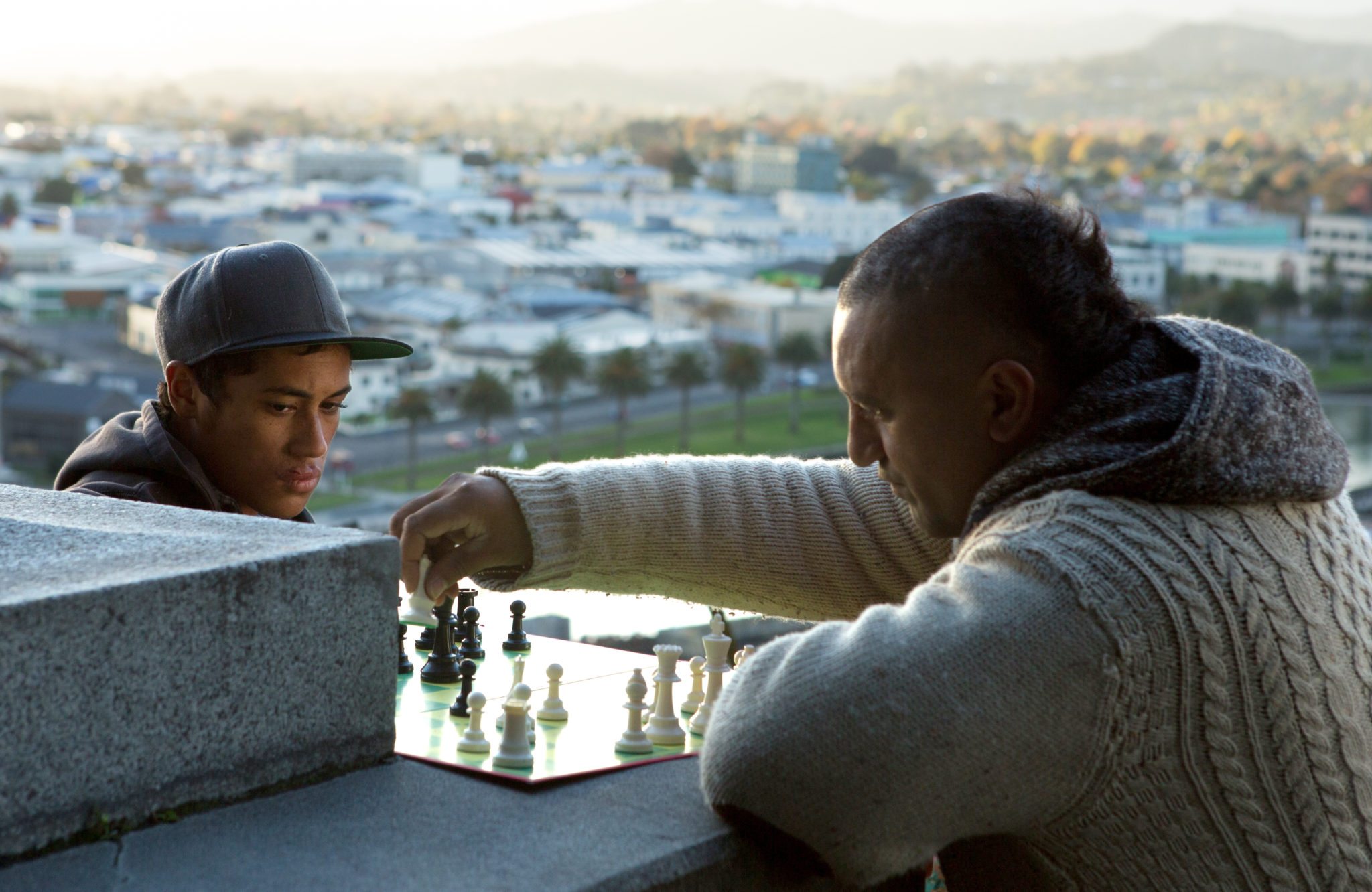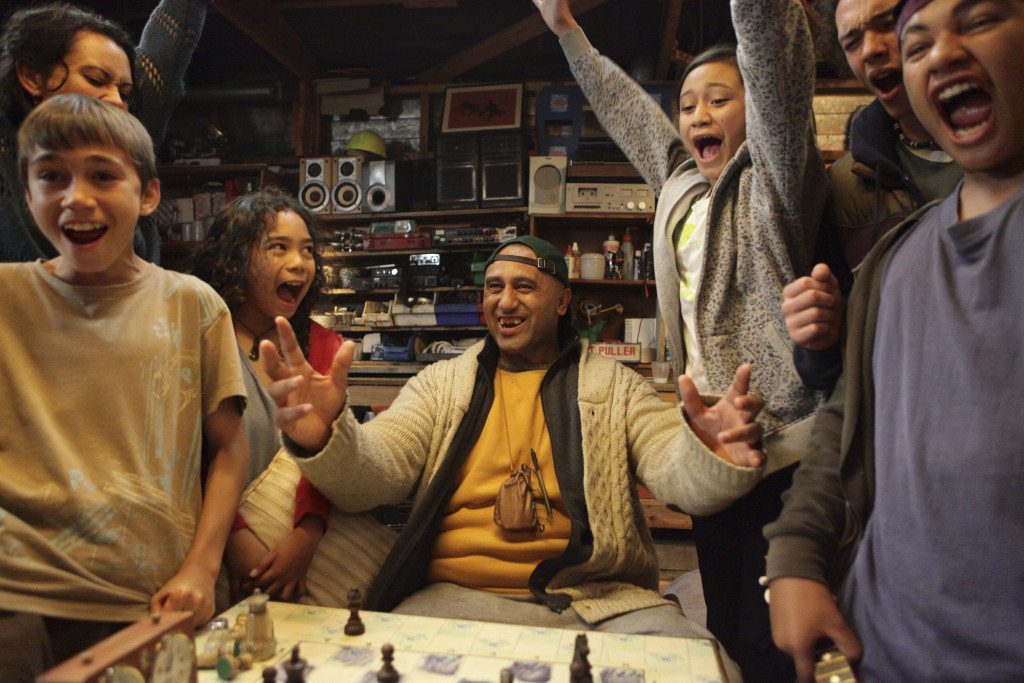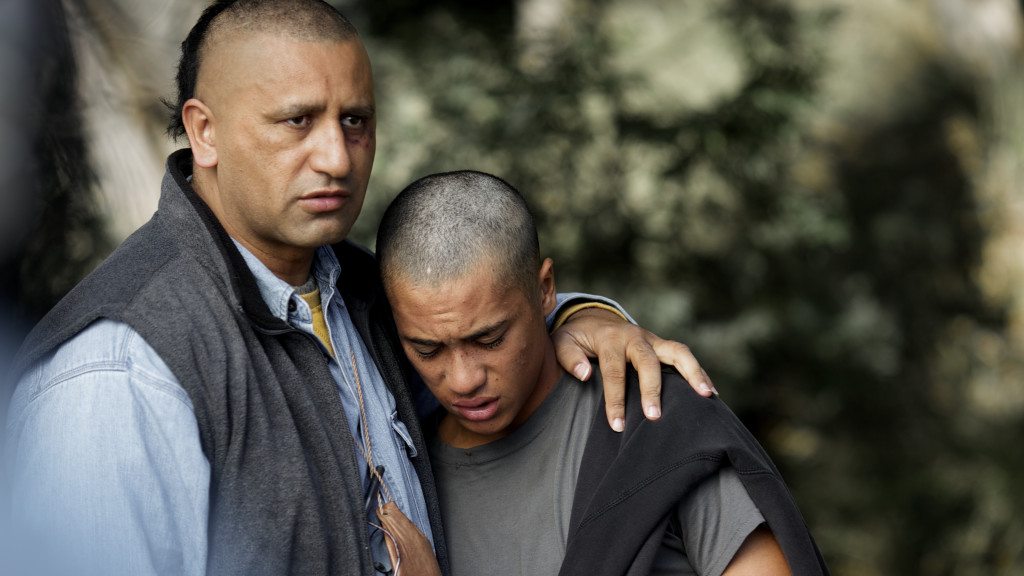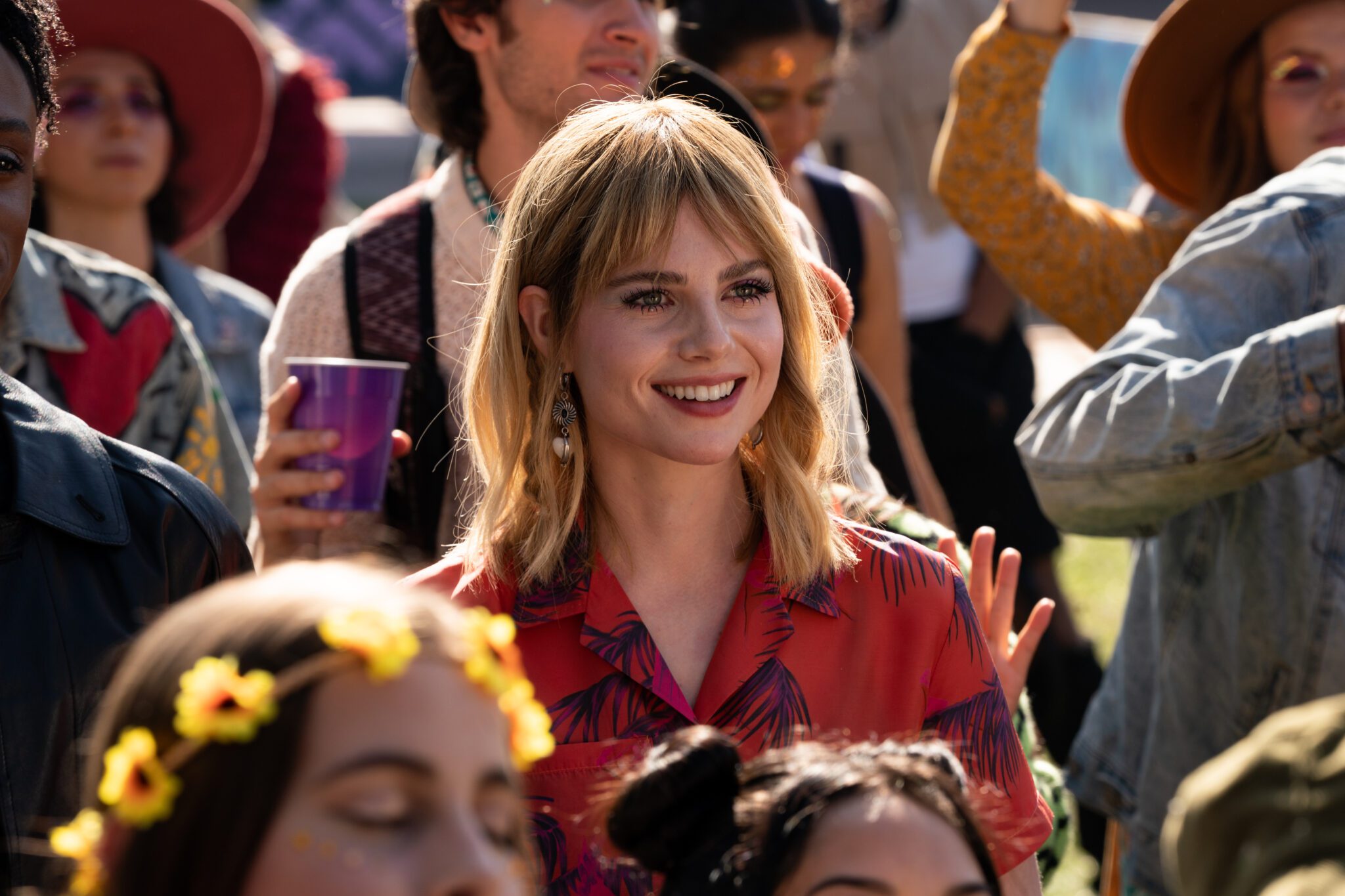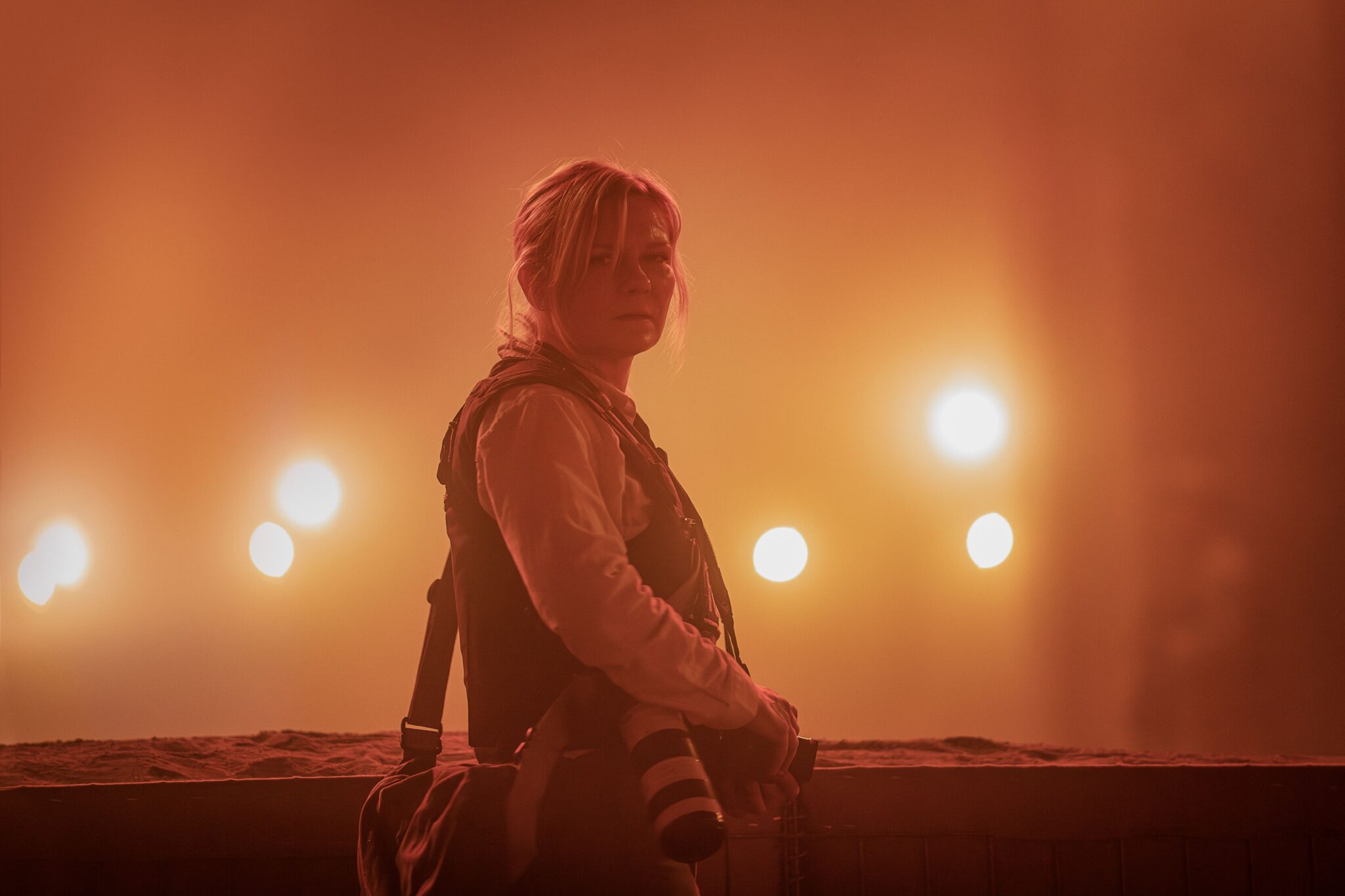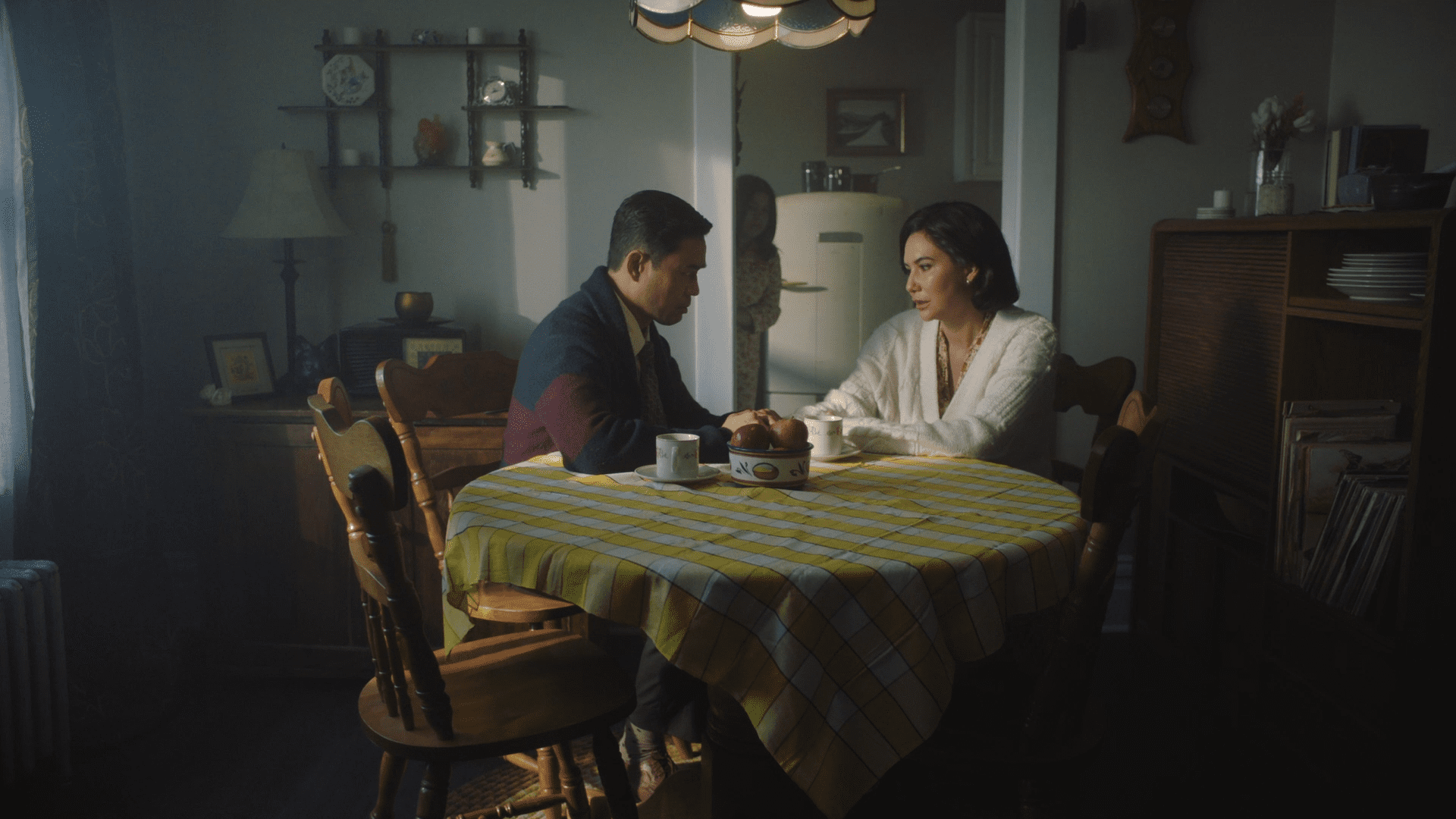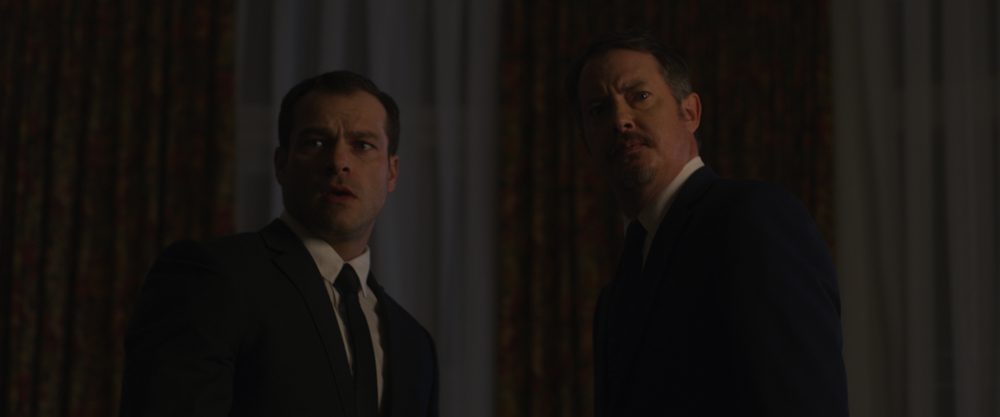?You are not what they are making you think you are.?
Based on a true story, The Dark Horse, follows Genesis (Gen) Potini, a one-time chess champion who spent years in and out of mental hospitals. While it?s not unusual for stories to have a Christ figure who is mentally ill, I found the unusual way that Gen serves in that role to be both fresh and challenging.
We get just a glimpse of Gen?s mental illness in the opening scene when he wanders down the street in the rain and into a store where he plays a solo chess game on a board there before the authorities come to take him away. When he is released he must live with someone, so moves in with his brother Ariki. It?s not a good fit. Gen needs calm and stability. Ariki is part of a violent Maori motorcycle gang. Ariki?s son Mana is a mild mannered fifteen year old, but Ariki is pushing to get Mana jumped into the gang. To feel needed Gen volunteers as a local chess club (where chess is rarely played) for disadvantaged youth. He soon has them preparing for the national junior chess tournament. When Ariki kicks him out of the house, Gen sleeps at a memorial overlooking the city. As he mentors the players and tries to provide Mana with an alternative to the life in the gang, Gen also struggles to maintain his own connection with reality and life.
For Gen chess is more than a game?it is his connection to his heritage. As he teaches chess to Maori children he connects them to their warrior folklore. He also demonstrates that the pieces all work together as a community?as a family. So when he has them all take pieces from a special chess set to serve as talismans in their playing, he also has them bring them back to keep the family together.
The Dark Horse is a richly layered film that allows viewers to plug into it in a variety of ways. On one level, it is a sports film in which the wisdom of the ages is passed down to a new generation. It follows the convention of such films by taking us to the tournament where the children must play on their own (which is harder for Gen than it is for them). It values community and reflects on some of the healthy and unhealthy ways we seek community in our lives. Ariki and his gang are?a type of family just as the chess club becomes for Gen and the children. For Mana, a choice must be made between these two paths to community?or maybe the choice will be made for him by Ariki.
But for me this is the kind of film that draws me in at a theological level. I mentioned above that Gen serves as a Christ figure. Often that means one who is sacrificed to save another. When Gen interacts with Ariki and the gang, that is always a potential. But Gen is not so much a sacrifice as a presence. Even given his tentative grasp on sanity, Gen represents the coming presence of one who brings new life?both to the kids in the chess club and to Mana. That atonement (to use the theological term) does not take place through sacrifice (although it plays a part), but rather through Gen?s decision to be a part of their lives and to create with them a community that is based not in power but in acceptance of all who come. Gen, then, is a model for Incarnational Atonement?the concept that it is in the Incarnation, the Word becoming Flesh, that reconciliation, redemption, and salvation are found. The Dark Horse gives us a chance to consider what it means that God reaches out to us to be reconciled and what it means to find that connection to the one who comes to us.
Photo Credit: Steve King / Broad Green Pictures

